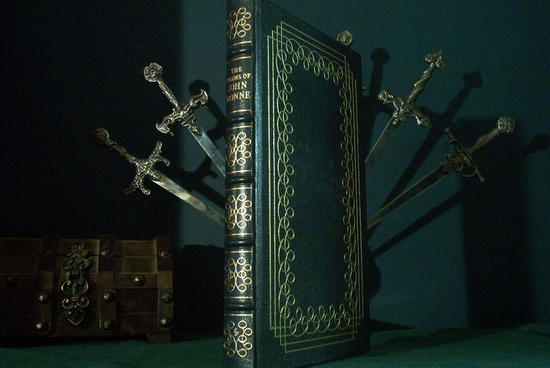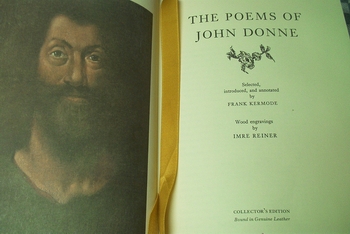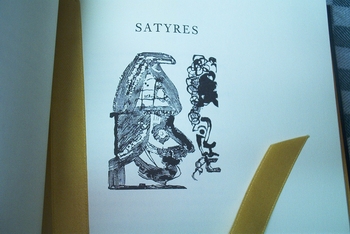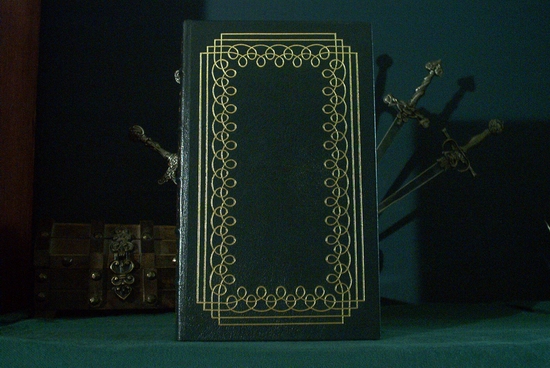Easton Press John Donne books
The Poems of John Donne - 100 Greatest Books Ever Written - 1979Poems and Proses of John Donne - Library of Poetry - 1995
The Lives of John Donne - Harvard Classics
Franklin Library John Donne books
Poems of John Donne - 100 Greatest Books of All Time - 1978
Poems - Oxford Library of The World's Greatest Books - 1985
Poet John Donne biography
John Donne (1573-1631), English poet, lawyer, and divine, born in London. At the age of eleven, he entered Hart Hall, Oxford University, where he studied for three years. According to some accounts, he spent the next three years at Cambridge University. He began the study of law at Lincoln's Inn, London, in 1592. About two years later, he relinquished the Roman Catholic faith, in which he had been brought up, and joined the Anglican Church. His first poems, Satires, written during this period of residence in London, are considered one of John Donne's most important literary efforts. Although not immediately published, the volume had a fairly wide reader-ship through private circulation of the manuscript, as did his love poems, Songs and Sonnets, written at about the same time as the Satires. In 1596, possibly as a result of his friendship with Henry Wotton, whom he had met at Oxford, he joined the navel expedition which Robert Devereux, 2nd Earl of Essex, led against Cadiz, Spain. On his return to England, John Donne was appointed private secretary to Sir Thomas Egerton, Keeper of the Great Seal. His secret marriage, in 1601, to Egerton's niece, Anne More, resulted in his dismissal from this position and his confinement, for a brief period, in prison. A cousin of his wife offered the couple refuge in Pyrford. While there, John Donne wrote his longest poem, Metempsychosis; The Progress of the Soule, which ironically depicts the transmigration of the soul of Eve's apple.John Donne Poems
John Donne's poetry is characterized by complex imagery and irregularity of form. His intellect, introspection, colloquial usages, and striking syntheses of apparently irrelevant ideas made his poetry boldly divergent from his smooth, elegant verse of his day. His language was seemingly "unpoetic", but was always chosen for its unique precision of meaning and connotation. The content of his love poetry, often cynical and sensuous, and representing a reaction against the sentimental Elizabethan sonnet, influenced the attitudes of the Cavalier school of English poets. The 17th century religious poets, sometimes referred to as "the metaphysical poets", and including Richard Crashaw, Henry Vaughan, and George Herbert, drew their inspiration from the imagery and spirituality of Donne's religious poetry. John Donne was almost forgotten during the 18th century. There was renewed interest in his work during the 19th century, and its popularity reached new heights during the 20th century. Such modern poets as T.S. Eliot and W.H. Auden have been greatly influenced by his style.Most of John Donne's poetry remained unpublished until after his death. The first volume of his collected poetry was published in 1633.




Comments
Post a Comment
Share your best book review and recommendation